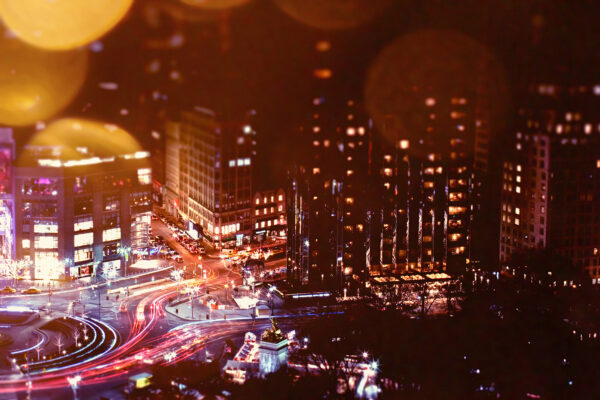
Will Wilkinson has another excellent op-ed in The New York Times about the maldistribution of power in the United States between rural and urban areas.
Part of the problem is that America’s federal system gives sparsely populated parts of the country way more power than the cities. That wasn’t such a big problem until the rural-urban divide became partisan. Now the largely white countryside and small towns vote overwhelmingly Republican while multicultural cities elect mostly Democrats. American democracy has been thrown into a crisis of legitimacy and dysfunction as a result.
Our politics is cracking up over the density divide. Big cities and their distinctive interests are suffering a density penalty and need more visibility in our scheme of representation.
Solutions
One solution would be to turn cities into large, multi-member congressional districts.
For example, instead of splitting up urban Los Angeles into eight or so legislative districts, a single district encompassing most of the city’s population would send the top eight vote-getters from the entire district to Washington. Each would represent all of Los Angeles, more or less — and two or three would likely be Republican.
(Multi-member congressional districts are a good idea in general. Click here to learn more about them.)
The advantages:
- It would stock the House with a significant block of votes representing cities as unified communities, much as senators represent whole states, ensuring that distinctive urban interests have defenders in Congress.
- An urban caucus within the House that included a smattering of big-city Republicans would mitigate the threat of polarized minority rule by discouraging Republican persecution of urban constituencies, incentivizing outreach to socially conservative communities of color and creating a needed platform for free-market ideas in sclerotic big-city Democratic politics.
Another solution is to devolve more power to city governments.
Democratic states have generally been lenient in allowing cities to make their own rules, but many Republican state legislatures have preemptively banned city-level sanctuary policies, minimum-wage hikes and civil rights protections for gays, lesbians and transgenders.
Avoiding a deeper split
Ronald Brownstein and Janan Ganesh have both warned that, at some point, city dwellers may decide they have had enough of subsidizing provincials who vote against their heathen ways from a distance.
Cities produce the most culture and the most growth, yet they are being ruled over — and held back — by areas that feel left behind. Brownstein wonders,
How long can the places that are mostly lagging in the economy dictate the terms of politics and policy to the places that are mostly succeeding?
In Europe, some urbanized areas, like Catalonia in Spain and northern Italy, are already fighting back.
To avoid a deeper split in America, give cities the power they deserve.
